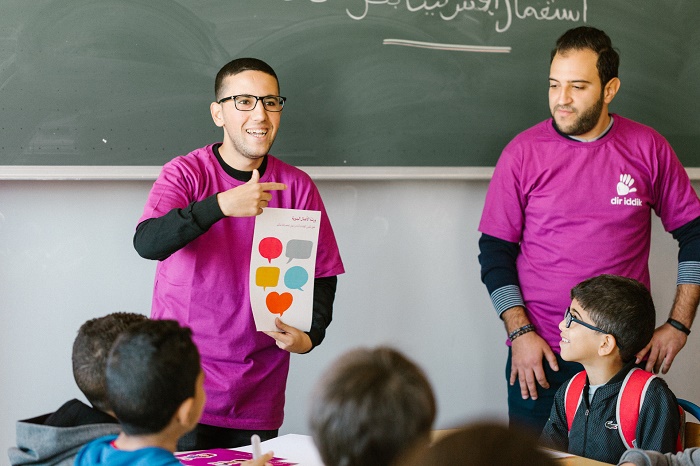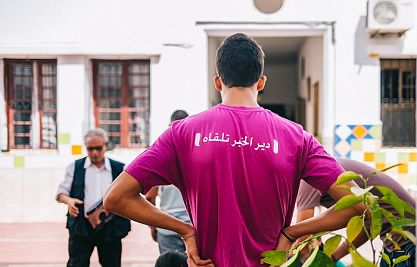
Joining as a regular volunteer means having the opportunity to support your community, meet new people and take a fresh look at the world. But volunteering in its broadest definition also allows young graduates to reap a number of benefits, including improving their employability while increasing their value in the labor market.
Develop your skills!
Experience as a volunteer within an organization (association, NGO, association, federation, etc.) can be very effective for training and refining technical knowledge. By organizing an event or participating in a call for donations, it is the Project Managers of tomorrow who are prepared for the responsibilities of a full-time job within a company.
Recruiting volunteers, selling products (pins, cakes, t-shirts, etc.) to raise funds or simply participate in fundraising, sharpens the senses of the formidable commercial agent hidden in all of us.
Finally, being in charge of a group of volunteers and managing actions in the field sheds light on managerial skills and gives an overview of the daily life of an executive or team leader.
Networking opportunity
If networking is the mantra of young entrepreneurs and recent graduates (and job seekers), a question arises for itself: How to create or expand your network (or professional network)?
Start by getting involved with an association or non-profit organization. In the United States, for example, where the culture of volunteering is deeply rooted, nearly 40% of university students have volunteered already. This allows them to meet a multitude of interesting people, potential business partners, professionals, mentors and in some cases recruiters.
And in a world where more and more companies are becoming responsible and developing their own CSR strategies, the need for young people, hardened by social work, has never been more important.
Fill in some gaps
The search for a job seeker is simply paradoxical. He needs experience to be recruited and needs to work to gain experience. With volunteering, the problem is solved. Associations accept all volunteers, including the less experienced, and the more signs of attendance, the more recommendations will flow.
Graduates from top business schools in Morocco (and graduates from Moroccan universities) struggle to get job interviews after graduation. A waiting period (in technical unemployment) of 12 to 18 months follows. A period that can be used to do good and enrich one's academic and professional career.
A young volunteer thus manages to seduce his recruiter by mentioning on his CV his greatest achievements, his projects carried out and his high degree of motivation.



